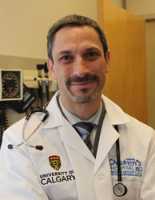Author Interviews, Gastrointestinal Disease, Weight Research / 21.09.2019
Obese Patients More Likely to Have Diarrhea
MedicalResearch.com Interview with:
Sarah Ballou, PhD
Health Psychologist
Division of Gastroenterology, Hepatology, and Nutrition
Beth Israel Deaconess Medical Center
Boston, MA
MedicalResearch.com: What is the background for this study? What are the main findings?
Response: Obesity is known to be associated with an increased risk of gastrointestinal and liver diseases, but less is known about the relationship between obesity and constipation or diarrhea.
We used a nationally representative sample of the US population to evaluate whether obesity was associated with abnormal bowel habits. We found that obese individuals were 60% more likely to have diarrhea, even after controlling for possible confounding factors such as dietary, lifestyle, psychological, and medical conditions.
(more…)






